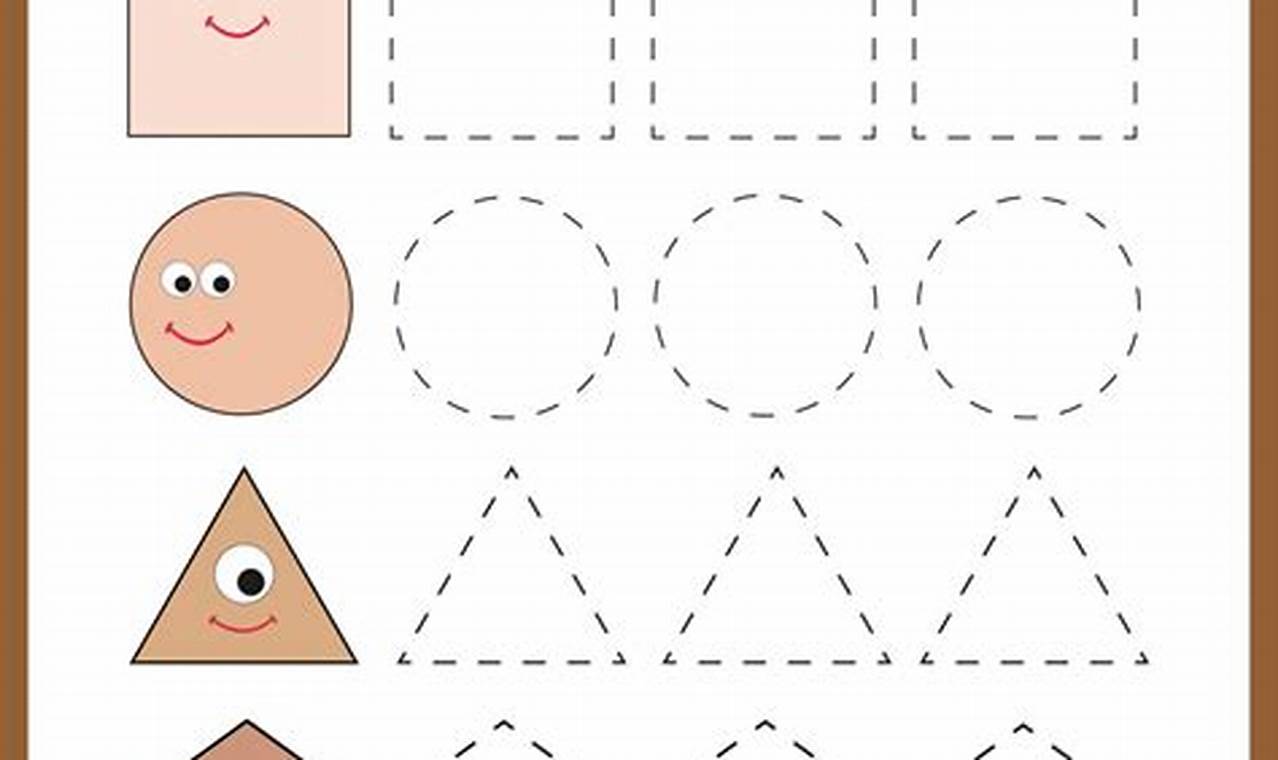Developing fine motor skills is a crucial step in a child’s early education. These skills, involving the small muscles of the hands and fingers, are fundamental for tasks such as writing, drawing, and manipulating objects. Practicing these skills early on helps children build a strong foundation for future academic and everyday success. Worksheets designed for tracing simple shapes offer an engaging and effective way to foster this essential development.
Using a worksheet focused on tracing simple shapes provides numerous benefits. It enhances hand-eye coordination, allowing children to visually track and replicate shapes. This practice strengthens the muscles in their hands and fingers, improving dexterity and control. Furthermore, shape recognition is improved, aiding in early math and spatial reasoning skills. Through consistent practice, children build confidence and prepare for more complex writing and drawing activities.
The “Tracing Simple Shapes for Fine Motor Practice” worksheet includes a variety of basic geometric shapes such as circles, squares, triangles, and rectangles. Each shape is presented with a dotted outline for children to trace. Bold lines and clear presentation help children easily follow the contours. Ample space is provided for repeated tracing, allowing children to practice each shape multiple times, reinforcing their muscle memory and improving precision.
To use the worksheet effectively, provide a comfortable and supportive environment. Encourage children to hold their pencil or crayon with a relaxed grip. Begin by demonstrating how to trace a shape slowly and carefully. Encourage the child to stay within the dotted lines, but avoid focusing excessively on perfection. Break the activity into short sessions to maintain engagement. Positive reinforcement and encouragement are key to fostering a positive learning experience. Using thicker pencils or crayons can also make it easier for younger children to grip and control their writing instruments.
To further enhance fine motor skill development, consider supplementing the worksheet with other activities. Kidtraces.com offers a range of related worksheets focusing on letter tracing, number tracing, and more complex shapes. Educational games that involve manipulating small objects, such as building blocks or puzzles, can also be beneficial. Encourage daily activities like drawing, coloring, and playing with playdough to reinforce the skills learned through the worksheet.
The “Tracing Simple Shapes for Fine Motor Practice” worksheet provides a valuable tool for developing essential fine motor skills in young children. By enhancing hand-eye coordination, improving dexterity, and fostering shape recognition, this worksheet sets the stage for future academic success. Download and try this worksheet to support continuous learning and skill development, and explore more free resources on Kidtraces.com.
